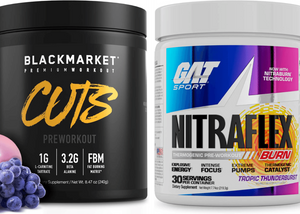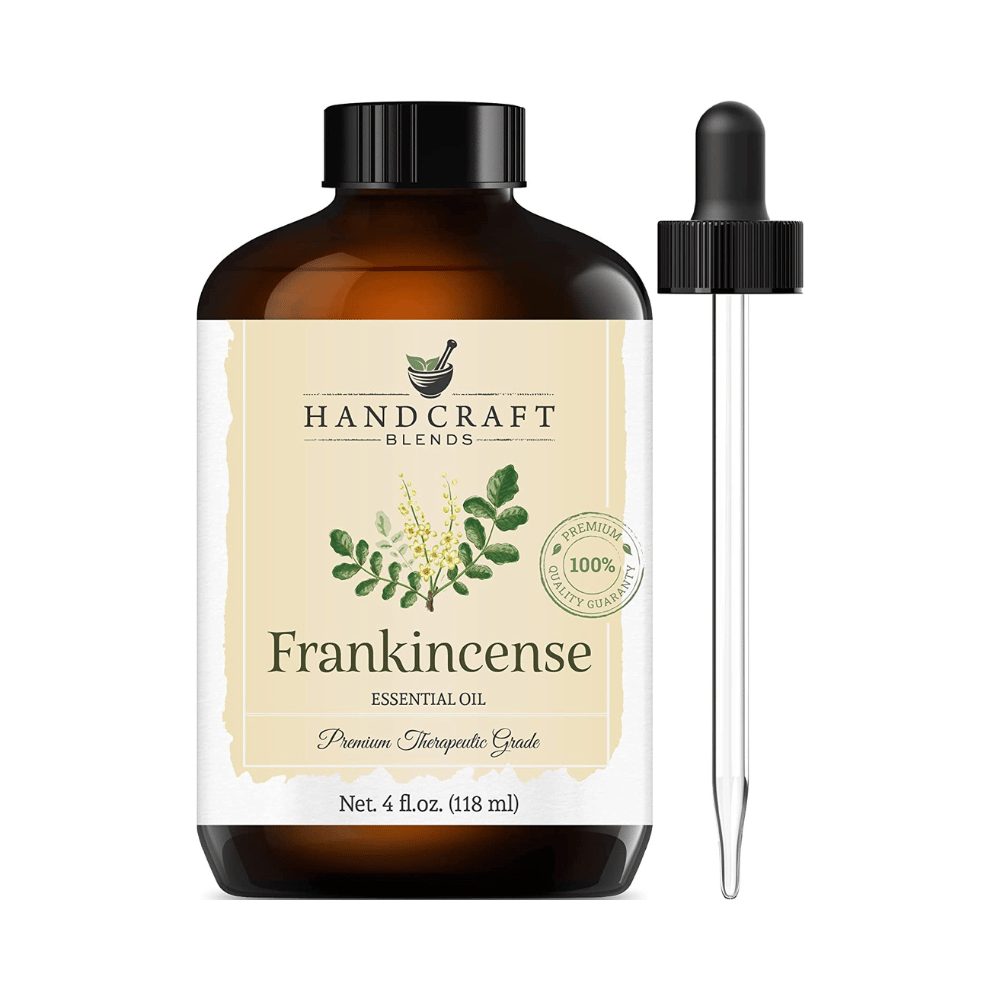Do you have a nasty bruise that’s slighting your style? Bruises can be an embarrassing reality, but they don't have to keep you down. Essential oils offer natural remedies and pain relief for bruising that could help reduce the severity and speed healing time.
Explore the various essential oils for bruises, learn about their effects on skin health, discover the best application methods, and much more here in this comprehensive blog post.
Don’t let those bruises get you down - try these proven tips from today's medical experts to heal faster with improved comfort!
What Is A Bruise and What Happens When You Bruise?
A bruise, also known as a contusion or ecchymosis, is a type of injury that occurs when the small blood vessels under the skin are damaged due to a direct impact or sudden trauma. This damage causes the red blood cells to leak out into the surrounding tissue and form a discolored area on the surface of the skin.
Bruises can range in size from small spots to large dark patches, and they may be painful, tender, or even swollen depending on the severity of the injury. The color of a bruise will usually change over time, eventually fading away altogether.
In most cases, bruises heal themselves without medical treatment; however, severe acute soft tissue injuries may require medical care.
Can Essential Oils Treat Bruises?

Essential oils have been used for centuries to treat various ailments and bruises are no exception. While scientific evidence for the effectiveness of essential oils in treating bruises is still limited, anecdotal accounts suggest that certain essential oils may help reduce swelling and discoloration of bruises.
Some essential oils that have been used to treat bruises include lavender oil, helichrysum oil, cypress oil, frankincense oil, and rosemary oil. All of these essential oils contain anti-inflammatory compounds that can help reduce inflammation and swelling associated with bruising.
Additionally, lavender and helichrysum are thought to work as a decongestant by promoting circulation and allowing blood to flow more freely around the bruised area.
One possible method for using essential oils to treat bruises is through topical application or massage. Massaging gently with an appropriate carrier oil (such as fractionated coconut or jojoba oil) containing the desired essential oil can increase circulation in the bruised area and speed up healing time.
It is important when applying any topical product that you dilute it properly so as not to cause irritation or further damage to the skin. You should also check with your doctor before using any kind of essential oil on a bruise, especially if you are pregnant or breastfeeding.
Overall, while there is some anecdotal evidence that suggests certain essential oils may be effective at treating bruises, more scientific research is needed before definitive conclusions can be made about their efficacy in this regard.
Best Essential Oils For Bruises
Essential oils have many benefits, but can be expensive. If you're looking for a natural way to heal bruises, essential oils are the answer. Below is a guide to the best essential oils for healing bruises and their affordable prices. You'll learn about the benefits of each oil and how to use them safely and effectively.
Helichrysum Essential Oil
Helichrysum essential oil is an effective herbal remedy for many aspects of health and wellness. It is derived from the helichrysum plant, which is native to the Mediterranean region.
A few drops of helichrysum oil has anti-inflammatory, antioxidant, antifungal, and antibacterial properties, making it a great natural remedy for a wide variety of ailments.
Its most common uses are to reduce inflammation, reduce pain, improve digestion, and soothe skin problems such as acne and eczema. It also has aromatherapeutic benefits that help improve moods and provide relief from stress and anxiety.
Frankincense Essential Oil
Frankincense essential oil is derived from the resin of the Boswellia tree, which grows in parts of Africa, India, and the Middle East. This fragrant oil has long been used in religious ceremonies as well as traditional medicinal practices due to its powerful healing properties.
Frankincense essential oil can be inhaled or applied topically to treat a wide variety of conditions including chronic pain relief, improved cognitive function, reduced inflammation, and even potential cancer prevention.
It also has calming effects that can help with stress reduction and improved moods.
Lavender Essential Oil
Lavender essential oil is one of the most popular essential oils around due to its pleasant aroma and wide range of uses. It's derived from the flowers of the lavender plant that grows in areas like Europe and North America.
The lavender essential oil has numerous therapeutic benefits including reducing anxiety levels, improving sleep quality, fighting bacterial infections as well as easing headaches or migraines.
Due to its calming properties, it’s also often used in aromatherapy treatments like massage therapy or bathing rituals for relaxation purposes.
Turmeric Essential Oil
Turmeric essential oil is extracted from the rhizomes (roots) of the turmeric plant that grows mainly in South Asia regions like India or Sri Lanka. This fragrant yellow-orange spice has been used throughout history for many different reasons including flavorings dishes as well as traditional medicine practices due to its anti-inflammatory properties.
Turmeric essential oil is known for helping ease joint pain and alleviate muscular aches associated with arthritis as well as reducing symptoms associated with digestive issues such as bloating or cramping when applied topically on the stomach area or diffused into a room through an aromatherapy diffuser device.
Yarrow Essential Oil
Yarrow essential oil is an extract made from dried yarrow wildflower petals natively found in North America but grown around other parts of the world too nowadays due to its immense healing potential.
Yarrow essential oil contains antispasmodic compounds which means it can offer relief from painful muscle spasms caused by conditions such as rheumatoid arthritis or menstrual cramps when massaged onto affected areas directly after dilution with a carrier oil such as coconut or avocado oils for example in order to prevent skin irritations caused by undiluted exposure to this potent natural remedy solution.
Rosemary Essential Oil
Rosemary essential oil extract comes primarily from countries within Europe especially those around the Mediterranean region where this beautiful perennial herb naturally occurs naturally without any embellishments - thanks to its incredibly pungent earthy odor filled with many different therapeutic benefits when consumed either by inhalation (aromatherapeutic), ingestion (having drops added on food ingredients) or topical application (diluted with carrier oils).
Rosemary is known for strengthening mental clarity & concentration levels along with providing cardiovascular support plus having antioxidant-rich characteristics beneficial for healthy-looking skin appearance among other beneficial uses similar to other herbs & spices extracts too!
Tea Tree Essential Oil
Tea tree oil (Melaleuca alternifolia) is a powerful essential oil with numerous health benefits. It is known for its anti-microbial and antiseptic properties and has been used for centuries to treat skin infections, acne, wounds, cuts, boils, and burns.
It can also be used as an anti-inflammatory to reduce swelling from insect bites or other skin irritations and is effective at treating respiratory conditions such as bronchitis and sinusitis.
Tea tree oil is known to have antibacterial, antiviral, antifungal, antiparasitic, antioxidant, and immunostimulant effects.
Yarrow And St. John's Wort
Yarrow (Achillea millefolium) and St John’s wort (Hypericum perforatum) are two herbs commonly used in traditional medicine that have a variety of medicinal applications. Yarrow is known for its ability to reduce pain and inflammation associated with arthritis and other joint issues.
Meanwhile, St wort has been traditionally used to treat depression symptoms, as well as mild anxiety disorders. Both herbs are believed to possess antimicrobial properties which may help fight off bacterial or viral infections.
Arnica Essential Oil
Arnica essential oil (Arnica montana) is derived from the herb Arnica Montana (commonly known as Leopardsbane). The oil has many therapeutic uses due to its anti-inflammatory properties which help reduce pain from bruises, muscle strain, and sprains.
Additionally, arnica essential oil has been used topically for the treatment of rashes caused by bug bites or contact dermatitis. Arnica essential oil can also be inhaled to relieve headaches and migraines due to its calming effect on the nervous system.
St. John's Wort Carrier Oil
St John’s Wort carrier oil (Hypericum perforatum) is derived from the herb St John’s Wort—known for its antidepressant capabilities—which makes it incredibly beneficial when combined with other essential oils in aromatherapy treatments aimed at combating depression or anxiety disorders.
In addition to its mental health benefits, this carrier oil contains natural cicatrizants which aid in wound healing; antibacterial properties; anti-inflammatory effects; and polyphenols with antioxidant capabilities perfect for protecting against cellular damage caused by oxidative stress or environmental pollutants.
Myrrh Essential Oil
Myrrh essential oil (Commiphora myrrha) derives from a resin found in trees belonging to the Commiphora family native to Northeast Africa and the Arabian Peninsula region—it has long been used throughout history by various cultures including ancient Egyptians who employed it extensively in embalming practices during mummification processes.
Myrrh essential oil is renowned for its disinfectant qualities which make it useful for healing minor wounds; it also exhibits sedative effects useful for reducing insomnia or anxiety when diffused into a room or applied topically along with other carrier oils such as almond or jojoba oils.
Geranium Essential Oil
Geranium essential oil (Pelargonium graveolens) derives from the geranium flower native to South Africa—the same species of flower found growing in many gardens around Europe—and offers a wide array of therapeutic benefits due to its antiseptic properties which make it especially effective at treating bacterial infections such as Ecoli.
Additionally, geranium essential oil helps promote healthy skin when used topically due to its astringent qualities helpful in reducing inflammation associated with acne breakouts or seborrheic dermatitis.
It also provides nourishment due to its high content of fatty acids like oleic acid which helps restore balance within skin cells leading to improved complexion over time when regularly applied directly on affected areas.
Wormwood Essential Oil
Wormwood essential Oil (Artemisia absinthium), more commonly referred to simply as wormwood comes from a small shrub native primarily across Eurasia regions.
It features yellow flowers known scientifically as Artemisia absinthium—colloquially referred to sometimes simply as “absinthe” after being distilled into a potent alcoholic beverage historically consumed recreationally.
Nwed in several countries due to concerns regarding potential neurotoxic side effects if consumed excessively over long periods of time.
However, wormwood remains popular today amongst aromatherapists thanks largely due its strong antiseptic qualities that make it helpful for treating skin ailments.
These include acne breakouts without further damaging skin tissue through unnatural means like chemical peeling
How To Use Essential Oils To Treat Bruises?
Use Ice to Treat Bruises
When it comes to treating bruises, the first step is to use ice. Ice will help reduce inflammation and swelling in the affected area, as well as numb pain.
Applying an ice pack wrapped in a thin cloth or towel for 15 minutes every few hours can help reduce the appearance of bruises and speed up healing. Be sure to avoid direct contact with the skin to prevent any irritation or cold burns.
Don't Massage Immediately After a Bruise Appears
It's important not to massage the affected area immediately after bruising occurs, as this can make symptoms worse by increasing blood flow and further spreading of damaged tissue.
Instead, wait until the swelling has gone down before gently massaging the area with your fingertips in a circular motion. This will help improve circulation and bring more oxygenated blood to the area, which may hasten the healing process.
Apply Essential Oils Blend To Help Treat Bruises Quickly
Essential oils are known for their anti-inflammatory and antioxidant properties that can help heal bruises quickly. One popular combination for treating bruises is helichrysum essential oil blended with a carrier oil like sweet almond oil or coconut oil in a 1:3 ratio (one part essential oil and three parts carrier oil).
Apply this mix directly onto the affected area twice daily until you notice an improvement in the color of your bruise. It’s also important to note that some individuals may be sensitive to essential oils, so patch testing on a small area is recommended before applying any blends directly onto the skin.
Precautions To Take While Using Essential Oils For Bruises
1. Do a patch test before using essential oils on bruises.
2. Use carrier oil when applying essential oils to bruises.
3. Avoid using essential oils on open wounds or broken skin.
4. Do not use essential oils on infants or young children.
5. Consult a healthcare professional before using essential oils if you are pregnant or breastfeeding.
Frequently Asked Questions
Which essential oil is best for bruises?
The best essential oil for bruises is lavender oil. Its anti-inflammatory properties reduce pain, swelling, and inflammation of a bruise. It also helps to speed up the healing process and can reduce the appearance of a bruised area.
Additionally, its antibacterial properties help to prevent infection in any damaged tissue that may occur with a bruise. To use it effectively, dilute the oil with a carrier such as a coconut or almond oil and apply directly onto the affected area twice daily until healed.
Is tea tree oil good for bruising?
Yes, tea tree oil is an effective natural remedy that can help reduce the appearance of bruises. Its antiseptic and anti-inflammatory properties make it a great choice for alleviating the bruising, pain, and swelling associated with skin trauma.
Additionally, its powerful antioxidants help improve circulation to the affected area, aiding in healing and reducing discoloration. Regularly applying a small amount of undiluted tea tree oil directly to your bruise can provide relief from your symptoms within several days.
Can lavender oil help bruising?
Yes, lavender oil can be a beneficial treatment for bruising. When applied topically to bruised skin, lavender oil helps reduce inflammation and swelling while also promoting healing. It even has antiseptic properties that help protect the wound from infection.
Additionally, it's known to be calming and is thought to help relieve headaches associated with bruising. For best results when treating bruises with lavender oil, use an undiluted application one or two times daily until the bruise heals completely.
What essential oil will reduce swelling?
Essential oils can help reduce swelling thanks to their anti-inflammatory and analgesic properties. One of the most powerful essential oils for reducing inflammation is helichrysum oil, which has been found to be 5 times more effective in reducing swelling than other anti-inflammatory drugs.
Other excellent essential oils for reducing swelling include ginger, lavender, Roman chamomile, rosemary and eucalyptus. Additionally, massage with these essential oils can further increase their effectiveness in helping reduce your swollen area(s).
What essential oils are healing?
Essential oils are a powerful tool for healing and have been used for centuries in various cultures around the world.
Some of the most popular essential oils to use for healing include lavender, peppermint, eucalyptus, chamomile, tea tree oil, lemon balm, frankincense, rosemary, and clove oil.
Each of these essential oils has its own unique properties that can help promote physical or emotional health. All of these essential oils can be used either aromatically or topically (with a carrier oil), depending on what kind of healing you are looking for.
Conclusion
Ultimately, it is important to note that essential oils for bruises should be used with caution. Be sure to perform a patch test before applying such oils topically as some may result in skin irritation.
It is advised to speak with a healthcare practitioner before using essential oil formulation, especially if you are pregnant, nursing, or have any existing medical circumstances.
Essential oils can be used in various ways to help reduce the symptoms of bruising, swelling, and pain, but they should be used in moderation and alongside other supportive treatments such as compression and rest.
As we have discussed throughout this blog post, safety is key when using any form of remedy or holistic treatment – so remember to always use caution before attempting any kind of treatment.














